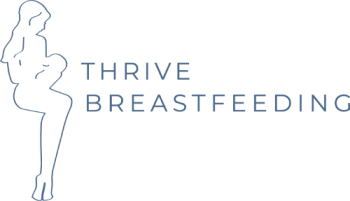What Foods Should You Avoid While Breastfeeding Your Baby?
Believe it or not, breastmilk is the perfect food for your newborn baby. The milk has a personalized formula with all the vital nutrients needed for your child’s proper growth.
However, sometimes finding the best breastfeeding nutrition can be stressful.
You may not know the amount of food to eat, foods to avoid while breastfeeding, and how a specific diet can affect your newborn baby. Don’t worry. This post explains the basics of breastfeeding nutrition and what to eat during your breastfeeding journey.
Should You Eat Extra Calories When Breastfeeding?
Yes! Consuming enough calories is vital for your body during your breastfeeding journey. It’s advisable to have about 400 extra calories per day to give your body the nutrition and energy needed to produce milk.
The easiest way to get these extra calories is by opting for nutrient-rich choices like a medium banana or apple, about 16 grams of peanut butter, a slice of whole-grain bread, or 8 ounces of yogurt.
Types of Foods to Eat When Breastfeeding
Be sure to concentrate on making healthy choices to fuel your milk production. Focus on protein-rich foods such as lentils, beans, dairy, eggs, and meats. Also, select a variety of whole grains, fruits, and vegetables.
When breastfeeding your baby, eating a range of foods will add essential nutrients to your milk.
To ensure that you and the baby are getting all vitamins needed, your healthcare provider may recommend you take mineral and multivitamin supplements.
Amount of Fluid Needed During Breast-Feeding
Make sure you drink plenty of water and other beverages when breastfeeding to stay hydrated. However, be careful when taking sugary drinks and juices as they add extra calories without any nutritional value.
Additionally, drink caffeine in moderation. The recommended intake is no more than 24 ounces or 3 cups of caffeinated drinks per day.
Foods and Drinks To Avoid Or Limit While Breast-Feeding
- Fish: Seafood is an excellent source of omega-3 fatty acids and protein. Some types have mercury and other harmful contaminants. Excess exposure to high mercury components through your breast milk can affect your baby’s nervous system. Limit seafood having higher rates of mercury, such as tilefish, king mackerel, and swordfish
- Caffeine: The average recommendation is not to consume more than 3 cups of caffeinated drinks per day, which might affect your baby’s sleep
- Alcohol: Alcohol has never been considered safe in a baby’s breast milk. If you consume alcohol, make sure you don’t breastfeed to ensure the alcohol contents are cleared adequately in the breast milk
Can A Mother’s Nutrition Cause an Allergic or Fussy Reaction To The Baby?
Certain drinks or foods in breastfeeding nutrition can make your baby develop an allergic reaction or become irritable. If the baby begins getting fussy, develops rashes, wheezing, or diarrhea immediately after nursing, then be sure to consult a pediatrician.
Furthermore, if you suspect something in your diet is affecting your baby, cut out the food for up to one week to check whether there is a change in their behavior.
The good news is; you don’t have to follow a special diet while breastfeeding. Instead, concentrate on going for healthy choices, and you, plus your child, will reap the outcome.
Your Designated Lactation Consultant
Remember, breastfeeding helps fuel your baby but can make you feel fatigued. Therefore, keep yourself and your child safe by using the best mother’s nutrition during this time.
